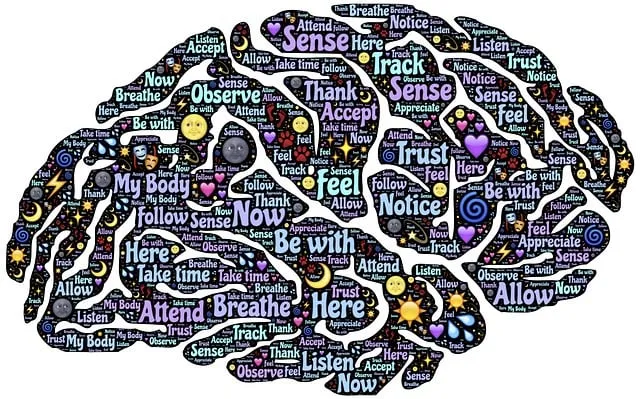The Kaiser Permanente mental health facility stands out for its culturally diverse approach, recognizing that each patient's mental wellness is shaped by their unique background. By integrating burnout prevention strategies and comprehensive training, they create an inclusive environment that celebrates diversity. This leads to enhanced patient outcomes, improved well-being for healthcare providers, and a solid reputation for superior care. Overcoming communication gaps through multicultural staffing and translation services, Kaiser Permanente ensures accessible, respectful treatment tailored to each patient's cultural needs.
“In today’s diverse society, cultural sensitivity is an indispensable aspect of mental healthcare. This comprehensive article explores the intricate relationship between cultural diversity and mental wellness, drawing insights from industry leaders like Kaiser Permanente. We delve into their best practices for fostering culturally competent care while navigating challenges in a complex healthcare landscape. Furthermore, we examine how this approach enhances patient outcomes, ultimately transforming mental health facilities into superior, inclusive environments.”
- Understanding Cultural Diversity in Mental Healthcare: A Necessary Foundation
- Kaiser Permanente's Approach to Cultural Sensitivity: Best Practices
- Navigating Challenges: Overcoming Barriers to Culturally Competent Care
- Enhancing Patient Outcomes: The Impact of Cultural Sensitivity in Mental Health Facilities
Understanding Cultural Diversity in Mental Healthcare: A Necessary Foundation

In the diverse landscape of mental healthcare, understanding cultural diversity is not just a preference but a necessary foundation. The Kaiser Permanente mental health facility excels in this aspect, recognizing that each individual’s mental wellness and emotional regulation are deeply influenced by their cultural background. This awareness is crucial when providing care, as it prevents potential burnout among healthcare providers by ensuring they can offer culturally sensitive services tailored to patients’ unique needs.
By integrating Burnout Prevention Strategies for Healthcare Providers, superior mental health facilities like Kaiser Permanente foster an environment where diverse cultures are not just accepted but celebrated. This approach not only enhances patient outcomes but also contributes to the overall emotional well-being of healthcare providers, ensuring a sustainable and compassionate mental healthcare practice.
Kaiser Permanente's Approach to Cultural Sensitivity: Best Practices

Kaiser Permanente, a leading healthcare organization, has set an exemplary standard for cultural sensitivity in its mental health facilities. Their approach is rooted in recognizing and valuing the diverse backgrounds and experiences of the individuals they serve. By implementing comprehensive training programs, Kaiser Permanente equips its staff with the skills to build empathy and navigate complex cultural nuances. This includes learning about different cultural beliefs, practices, and expressions of mental illness, ensuring a more inclusive and supportive environment.
The organization’s best practices go beyond awareness; they actively foster an atmosphere of respect and understanding. Through empathy-building strategies, healthcare providers create safe spaces for patients to share their stories freely. Additionally, Kaiser Permanente has initiated mental illness stigma reduction efforts, aiming to create a non-judgmental environment where individuals feel empowered to seek help without fear of discrimination. These practices not only improve patient outcomes but also boost the confidence of those seeking mental health services from these superior facilities.
Navigating Challenges: Overcoming Barriers to Culturally Competent Care

Navigating Challenges in a Kaiser Permanente mental health facility requires a delicate balance to overcome barriers and provide Superior care that respects diverse cultural backgrounds. One significant hurdle is breaking down communication gaps, especially when working with patients from different linguistic and cultural communities. Effective solutions involve hiring a diverse workforce and incorporating translation services to ensure accessible, accurate communication.
Moreover, Mental Health Awareness initiatives focused on promoting understanding and acceptance of various cultural practices can foster an inclusive environment. Techniques such as Mindfulness Meditation have proven effective in treating stress-related issues while respecting individual cultural beliefs. By integrating these strategies, Kaiser Permanente mental health facilities strive to deliver culturally competent care that addresses the unique needs of each patient.
Enhancing Patient Outcomes: The Impact of Cultural Sensitivity in Mental Health Facilities

In the realm of mental healthcare, cultural sensitivity is a game-changer, and its impact can be profoundly positive, especially within renowned facilities like Kaiser Permanente mental health facilities. Patients from diverse cultural backgrounds often face unique challenges and have distinct therapeutic needs. When mental health professionals demonstrate cultural sensitivity, they create an environment that fosters trust and understanding, enhancing patient outcomes significantly. This approach involves recognizing and respecting individual beliefs, values, and traditions, ensuring that care aligns with the patient’s cultural context.
For example, implementing empathy-building strategies can bridge cultural gaps. Mental health workers can actively listen to patients’ stories, understand their cultural references, and validate their experiences. Conflict resolution techniques tailored to diverse populations can also improve relationships between patients and caregivers. Moreover, developing public awareness campaigns that celebrate cultural diversity in mental healthcare encourages inclusion and ensures everyone receives the support they need. These initiatives collectively contribute to a superior patient experience, leading to better engagement, adherence to treatment plans, and improved recovery outcomes.
Cultural sensitivity is no longer a nice-to-have, but an essential pillar for any superior mental health facility. As societies become increasingly diverse, it’s crucial for practices like Kaiser Permanente to prioritize cultural competency. By understanding and navigating cultural differences, mental healthcare providers can enhance patient outcomes, foster trust, and create a more inclusive environment. The best practices outlined here serve as a guide for facilities aiming to improve their approach to culturally sensitive care, ultimately ensuring every patient receives the highest quality of service.






